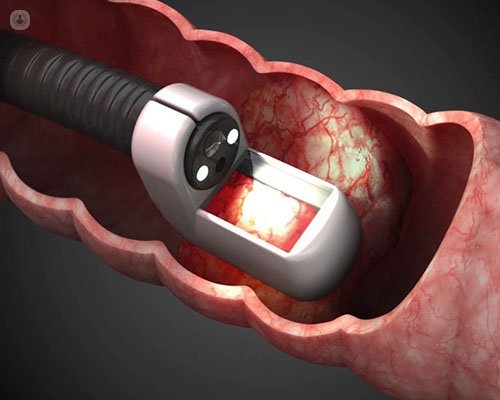What is electrochemotherapy?
Written by:Electrochemotherapy is a method to treat cancer using a special probe to send electrical pulses into the cancer cells. The cancer cells are targeted allowing lower doses of chemotherapy to be used, which enters the cells more easily. It has lower risks of side effects than chemotherapy alone. The National Institute for Health and Care Excellence (NICE) has approved its use.

Types of cancer that electrochemotherapy is used for
Electrochemotherapy can be used for cancers that can be accessed by the electrodes, which are commonly cancers found in or under the skin. The skin cancers basal cell carcinoma and squamous cell carcinoma, that has not spread, can be treated with the intent to cure them.
Other cancers that can be treated by electrochemotherapy that have spread to or under the skin are:
- Breast cancer
- Pancreatic cancer
- Melanoma
- Angiosarcoma - cancer of the inner lining of blood vessels in any area of the body
- Karposi sarcoma - cancer caused by a virus, which first appear as spots or lesions on the skin
Electrochemotherapy treatment process
A patient will have the chemotherapy (either cisplatin or bleomycin) as either an injection into the tumour or an injection into the bloodstream through a small tube. The dose is lower than with standard chemotherapy treatment as the electric pulse helps the chemotherapy enter through the cell wall. The treatment can take between 10 to 60 minutes depending on how many tumours a patient has.
Side effects of electrochemotherapy
Side effects can include pain where the electrode touches the skin, visible marks from the electrode pins and the treatment not being fully effective. There can be risks of the chemotherapy drug, depending on which one is used. It can require a general anaesthetic.
Why should patients opt for electrochemotherapy over other procedures?
Electrochemotherapy is one of a number of treatments for cancer. As a newer treatment, the evidence supporting its effectiveness is not as established as other treatments. A decision to use it needs to be carefully weighed with other treatments by the doctor and his team of experts. Its advantages mean that the side effects are generally fewer and less significant than other treatments, for example the scarring of an operation to remove a cancer and the long term risks of other cancers from radiotherapy.


